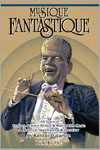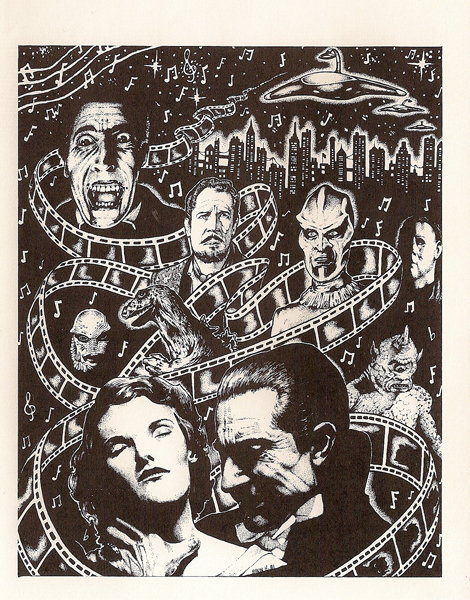July 28, 2020
Alexander Bornstein: Scoring TRANSFORMERS: WAR FOR CYBERTRON TRILOGY
Interview by Randall D. Larson
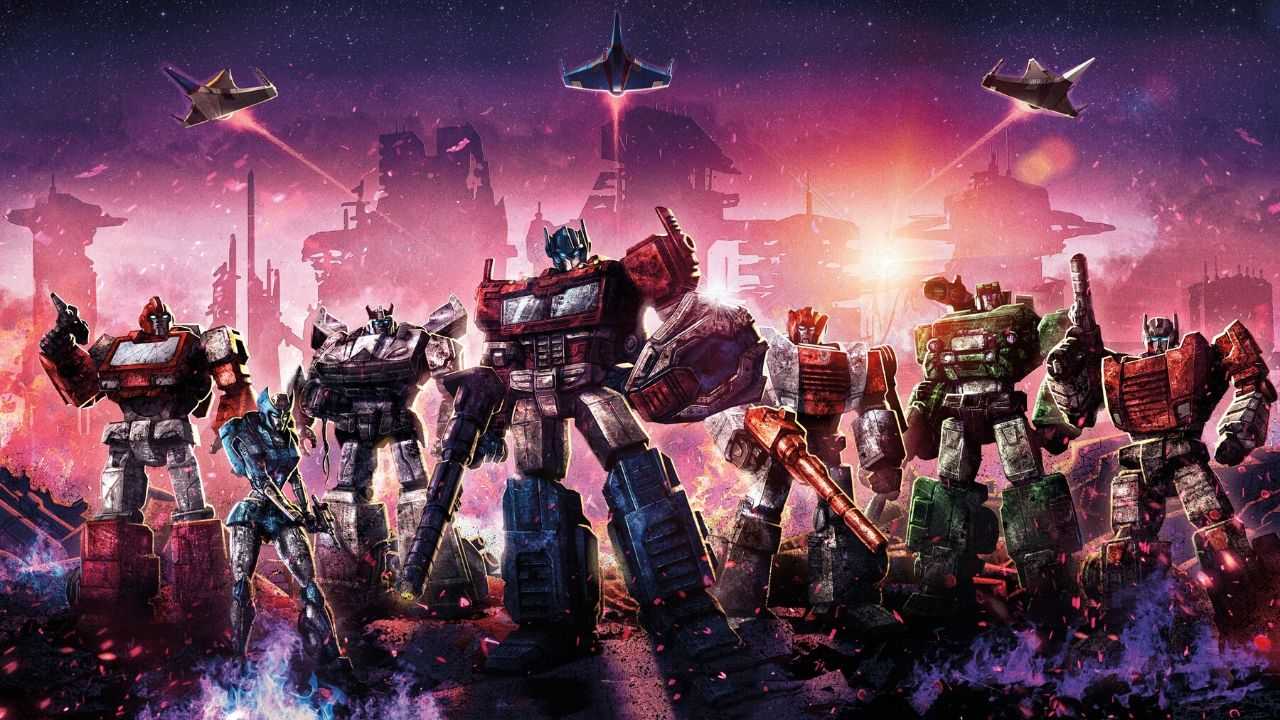
Alexander Bornstein (FIRST TO THE MOON, THE SINISTER SURROGATE, DEADLY SWITCH) has composed the score for the new TRANSFORMERS animated series, WAR FOR CYBERTRON, which inaugurates a trilogy of new adventures and battles between the Autobots and the Decepticons, premiering this Thursday, July 30th. The trilogy includes a new toy line and transmedia franchise that is part of the Transformers brand by Hasbro (it is not, however, related to the video game of the same name). The first Arc of the trilogy is entitled SIEGE and occurs when Cybertron has been torn apart because of the civil war between the Autobots and Decepticons. In an attempt to end the conflict, Megatron considers using the Allspark as a last resort, but Optimus Prime wants to prevent that from happening, even if that means destroying Cybertron in order to save it. Arc 2, EARTHRISE, will depict the Transformers leaving Cybertron in search for the Allspark, leading the Autobots and Decepticons to land over Earth. Arc3, KINGDOM, will show the Autobots joining forces with their descendants, the Maximals, against the Decepticons and their descendants, the Predacons.
Watch the WAR FOR CYBERTRON TRILOGY Trailer below:
Q: How did you become involved in scoring this animated series?
Alexander Bornstein: It was very fortuitous timing! When F.J. DeSanto (the series showrunner) began looking for a composer, my name came up to him through some mutual connections. After turning in some demo reels of my past work and some discussions about the music, I was lucky enough to be brought on board in the summer of 2019.
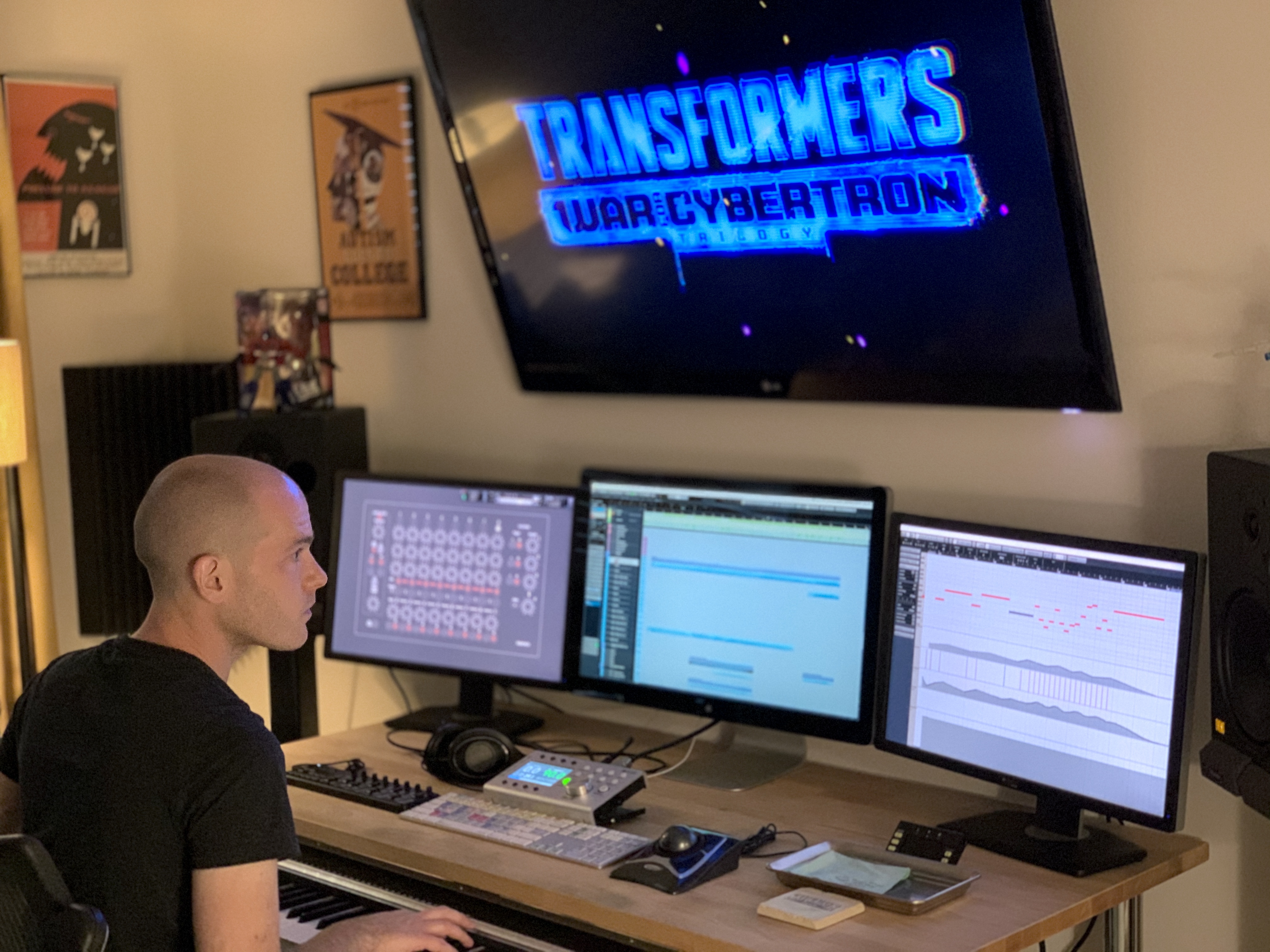 Q: Does this new animated trilogy fit into the previous live-action films franchise and/or the previous animated web series (Prime Wars, Combiner Wars, Titans Return)?
Q: Does this new animated trilogy fit into the previous live-action films franchise and/or the previous animated web series (Prime Wars, Combiner Wars, Titans Return)?
Alexander Bornstein: Technically, this takes place before the original “G1” [Generation1] television series. It is not connected in any way to the aforementioned trilogy.
Q: Is there a specific kind of sound inherent to this long-running franchise that you were asked or felt that you should embrace in your score?
Alexander Bornstein: You could argue that each take on this franchise has kind of had its own sound. The Robert Walsh/Johnny Douglas scores from G1 have a distinct sound from the fantastic Vince DiCola score of the 1986 film. For instance “Attack! Attack!”’ from the television series is orchestral and of that era’s animation scoring lexicon, but “Autobot/Decepticon Battle” from the film is way more electronic. All of this to say, that when work began we treated it as being given a blank slate of sorts.
I knew that the “Autobot” theme really needed to be direct and simple. If I couldn’t hum it easily, then it went in the garbage. As it turns out, I was sitting on my sofa one night with almost no noise around me and it popped in my head.
Q: Were you given the opportunity to provide wholly new thematic material or did they want you to maintain a continuity and reference any of the style of those previous animated shows?
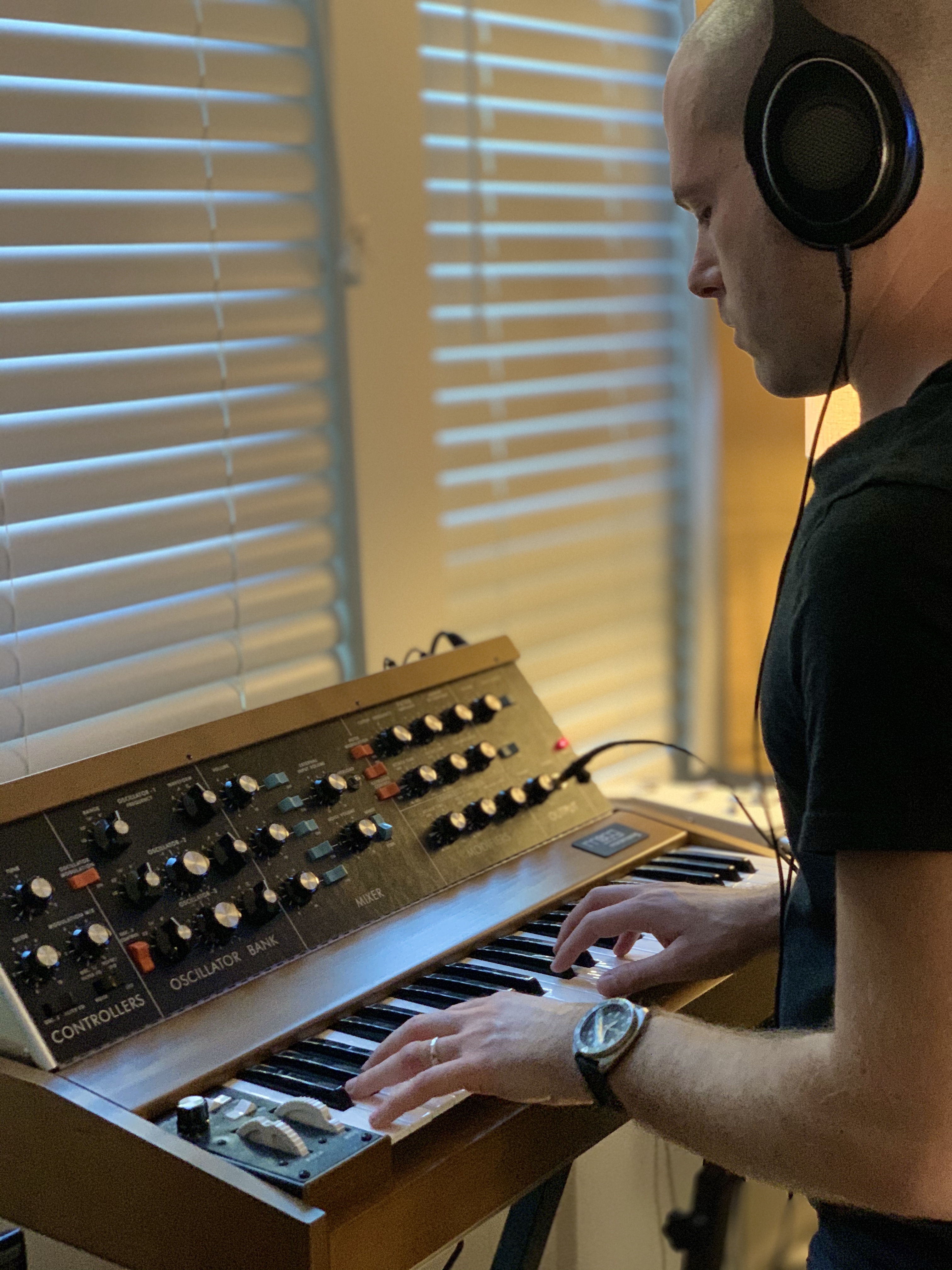 Alexander Bornstein: Once we were done discussing direction, sound palette, etc., I had free reign to come up with everything based on our discussions (synth, orchestra, percussion, etc.). It was extremely daunting, but really rewarding creatively once it all locked into place! Everyone agreed we needed strong thematic content to anchor everything, so I sat at a piano for a good long while before finding anything that stuck.
Alexander Bornstein: Once we were done discussing direction, sound palette, etc., I had free reign to come up with everything based on our discussions (synth, orchestra, percussion, etc.). It was extremely daunting, but really rewarding creatively once it all locked into place! Everyone agreed we needed strong thematic content to anchor everything, so I sat at a piano for a good long while before finding anything that stuck.
Q: Once you began to compose, how did you settle on your themes and develop the music into the three films that make up the trilogy?
Alexander Bornstein: I grew up as a film score fan, even way before I could call myself a musician. Without fail, the thing that helped me get into so many scores were strong themes—or even, just themes that we really get to stick with and hear repeated so they get coded into our brains. Bearing that in mind, I knew that the “Autobot” theme really needed to be direct and simple. If I couldn’t hum it easily, then it went in the garbage. As it turns out, I was sitting on my sofa one night with almost no noise around me and it popped in my head. Sometimes it’s really that simple, but this was after weeks of tossing out a lot of other ideas. I tried it out on the piano for a little bit with some different harmonizations, and that was that. Actors say that playing the bad guys is more fun, and I think it lends itself to more things musically as well. The Decepticon theme felt easier to design by comparison, although I consciously borrowed the ‘B’ theme from the Autobots and implemented it with different chords to be the Decepticon theme. Ideally, this creates a musical unity between the two factions in that ultimately, they are all Cybertronians. The Cybertron theme is really just about the size and majesty of this entirely mechanical/mechanized planet, but hopefully the major/minor mixture of harmony makes things feel somewhat alien.
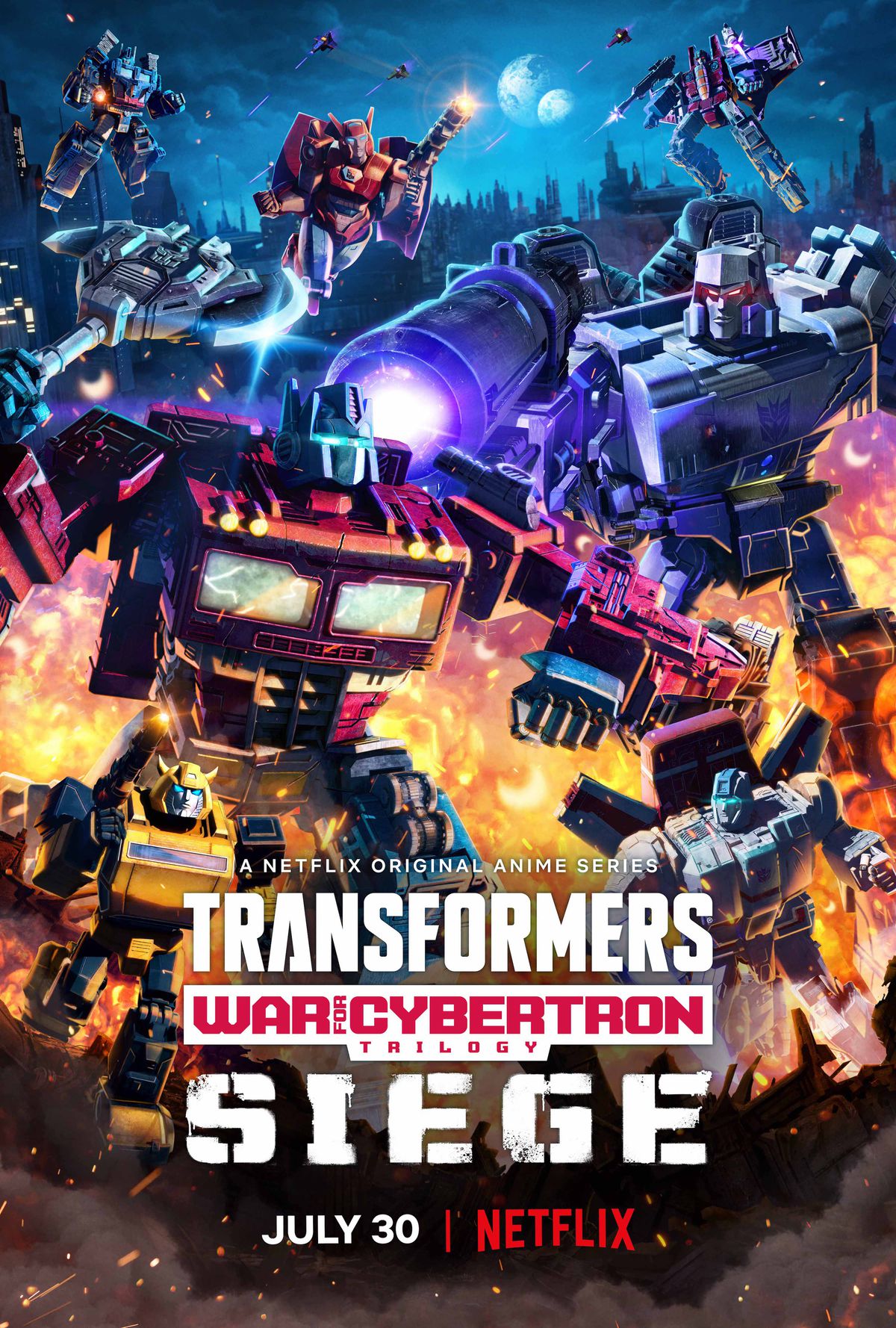 Q: The score has a powerful resonance, appropriate for these titanic heroes. What musical palette were you able to use (digital, live instruments, etc.?) for the score, and was there any particularly unique instrumentation used to identify characters or situations?
Q: The score has a powerful resonance, appropriate for these titanic heroes. What musical palette were you able to use (digital, live instruments, etc.?) for the score, and was there any particularly unique instrumentation used to identify characters or situations?
Alexander Bornstein: That’s great to hear, thank you! The music is almost entirely samples and synthesizers, composed in Cubase, with a small selection of solo instruments that were recorded live. Rather than slather on layers of single musicians trying to ‘de-sample’ the orchestra samples, I let them instead lean into the soloistic nature of their instrument and be more idiomatic/interesting. There is a very aggressive, arpeggiated bass line figure for the Autobots (first programmed on a Moog Model D then more or less re-created in u-he’s Diva), and a lower more insistent synthesizer pulse for the Decepticons (also found on the Minimoog). The Autobot theme itself tends to be in French Horns (lots of big, unison lines), and the Decepticons will usually be seen plotting on screen while legato quarter or eighth note strings bubble underneath. Their specific melody/chords are also typically on detuned pan drums/gamelans and a monosynth voice with lots of reverb. It gets some orchestral appearances though!
Q: With six episodes of 22-minute length, how much music did you compose and record?
Alexander Bornstein: SIEGE will consist of six episodes and is the chapter that premieres on July 30th. While there’s definitely an overarching story for the entire trilogy, each chapter can be thought of as a feature film—SIEGE unfolds in an almost aggressive real time. To a composer, it’s an exciting challenge—however intimidating! I wrote about 18-20 minutes of music for the first five episodes, and episode six is one long 22 minute cue I broke into shorter sequences with bridges built into each one so it flows the right way.
Q: How did the short length of the episodes affect your musical arc within the episodes—and how did the overall length of the trilogy as a whole allow you to provide that longer series-wide dramatic musical arc?
Alexander Bornstein: I wasn’t too conscious of the runtime of each episode. Once we had spotted everything (and the bigger picture musical structures were built) I took the episodes as they came and worked on about two minutes of music a day. Having a trilogy allows me to take themes and develop them in different ways so they could ‘arrive’ at certain moments with a lot of force in relation to the story. For example, the one motif starts out very quiet and distant early in the series but grows in intensity as the chapter progresses. This happens with some other themes, but it might be getting into spoiler territory if I explain much further! Being able to have the time and ability to craft these long form structures is very exciting, though.
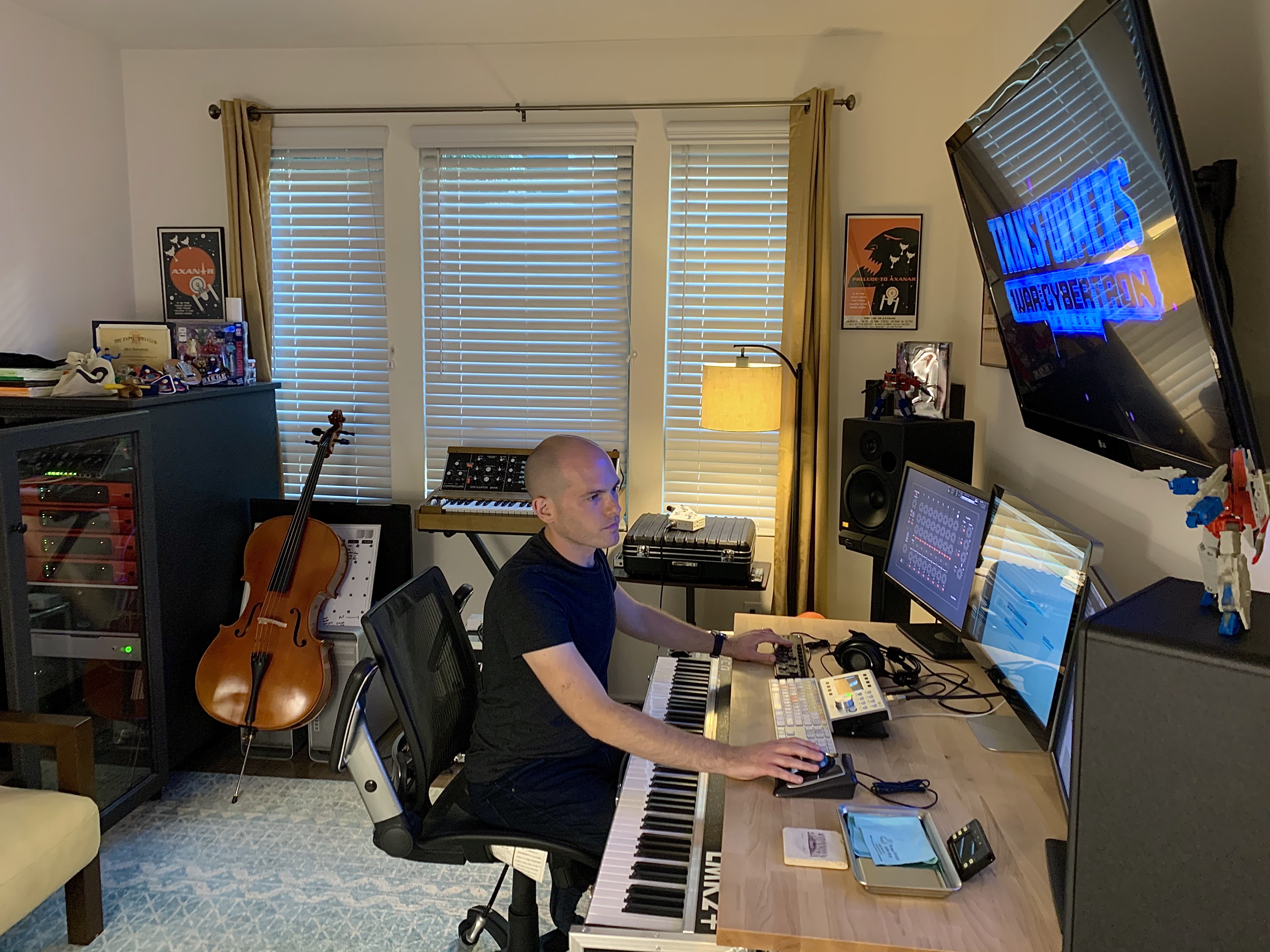
Q: How would you describe your score and its thematic/motivic components?
Alexander Bornstein: I think the score is very large in scope, but hopefully the solo instruments add a modicum of emotion and weight to what’s going on. It owes a lot of debt to TRON: LEGACY, OBLIVION, and a lot of Vangelis’ groundbreaking work. For the themes, I tried to make them as resonant to the characters as possible but ultimately that’s up to the audience to decide.
Q: What was most challenging for you about scoring this project? And most rewarding?
Alexander Bornstein: Writing a theme for the Autobots was incredibly challenging. Transformers is an internationally recognized property—there aren’t many places I could go in the world with a picture of Optimus Prime and not have people recognize him. Finding a melody that I was happy with and got into the show was a huge relief! Most rewarding was finishing episode six. The story is at a fever pitch by this point and I was really trying to make sure the music could keep up with the drama. Bringing home all of the themes in terms of development and then seeing the final version of the full episode at Technicolor in Dolby Atmos with the music playing full blast was amazing and surreal.
For more information on the composer, see his website at http://www.alexanderbornstein.com/
Related: Read my previous interview with Alexander Bornstein about FIRST TO THE MOON (The Story of Apollo 8) in my June/July Soundtrax 2019 column.

